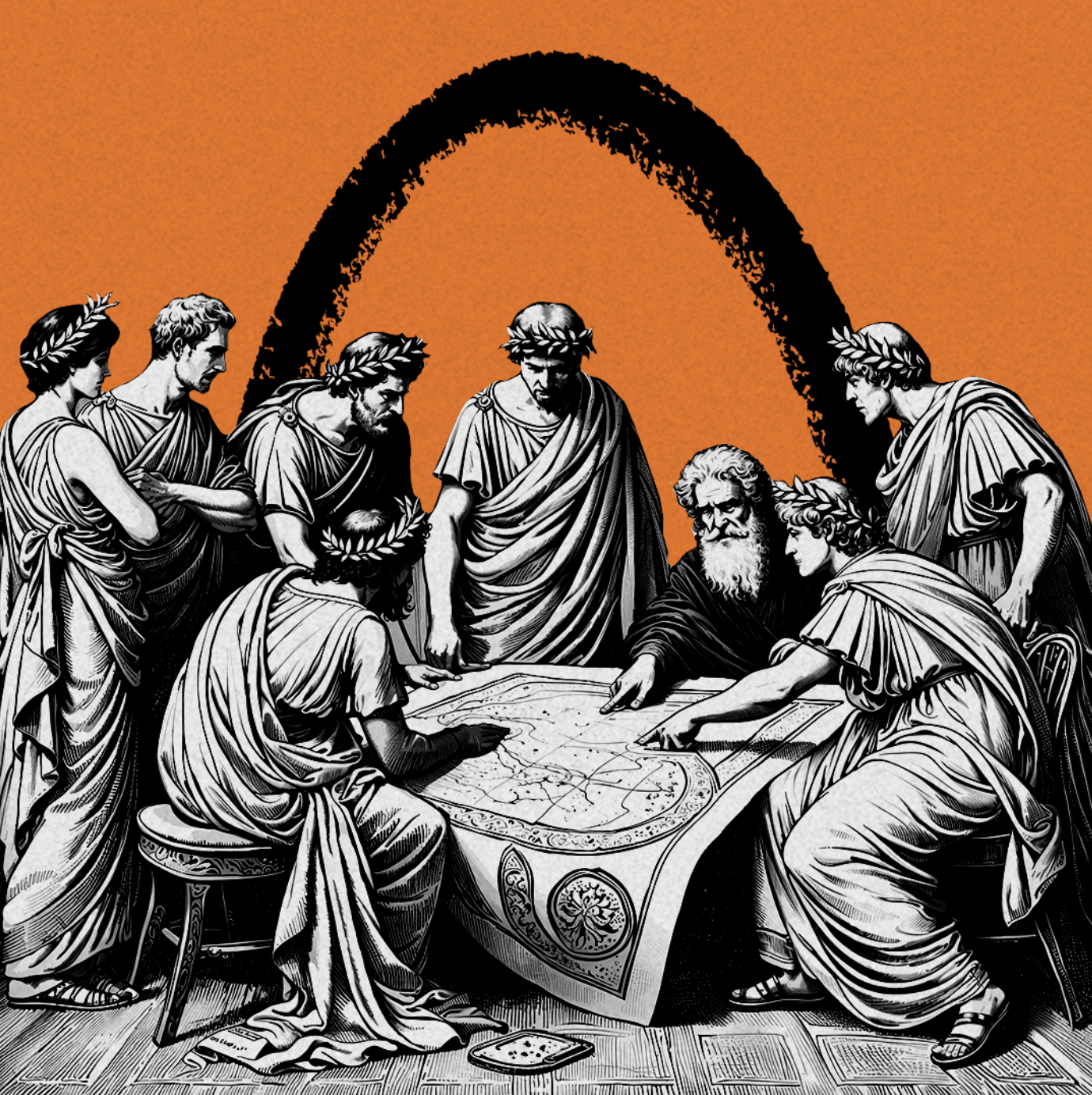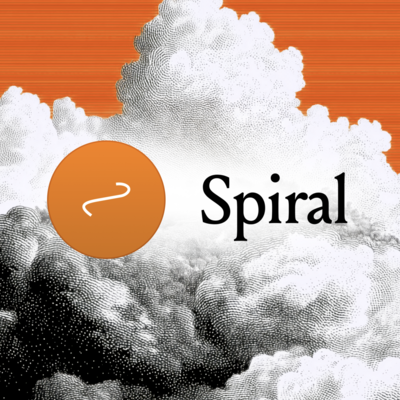
Sponsored By: Hubspot
Have you started using AI as your personal assistant?
This free guide from HubSpot unveils the power of delegating tasks to artificial intelligence, freeing up your time for what truly matters. From automating mundane chores to streamlining complex processes, this guide empowers you to work smarter, not harder.
Dive into the world of AI delegation and supercharge your efficiency. Download the free guide and revolutionize the way you work.
Was this newsletter forwarded to you? Sign up to get it in your inbox.
You may have noticed that things have accelerated at Every recently.
We’re exploring the frontier of what a creator-run business can be and can look like. It’s something new: a business that has writing and creative work at its core, and builds software and other kinds of products as an outgrowth of that. It doesn’t look like a traditional venture-backed startup, nor does it look like a typical small media business. It’s ambitious, and fun, and off the beaten path of business.
It’s also working.
We’ve been putting out writing that I'm insanely proud of. We’ve also released two new software products: Spiral, which just passed 3,000 users this week, and Sparkle, which is in closed beta. We’re growing revenue rapidly—our monthly recurring revenue is up almost 8 percent over the last 45 days, and our overall cash flow is up significantly as well.
Personally, I feel like I’m doing the best writing of my life. I get to wake up every day, play with AI, think about the future, and craft what I find into words. I’ve been writing on the internet for more than 10 years, but I feel like I just reached an unexpectedly high level: Last week I was in Rome hosting a panel on AI and creativity at the Aspen Institute Italia, two months ago I went to Seattle to interview Microsoft CTO Kevin Scott, and next week I’m flying to Brazil to keynote the largest AI conference in Latin America. I’ve never buzzed with so many ideas before.
There are many reasons for this success that have nothing to do with me. The biggest reason, obviously, is you: our readers. Nothing we do could happen without your support and attention.
Another reason is AI. The creative output—writing, code, design—that we can generate as a small organization is stunning. It feels like we’re sprinting in the sun when previously, we’d been running under water.
A third reason is the people who have chosen to work at Every. Our editor in chief Kate, our entrepreneur in residence Brandon, our lead writer Evan, our creative lead Lucas, our engineers Avishek and Andrey—and a whole host of others—are the key factors. It is the ultimate privilege to get to work with so many talented, kind, and hard-working people every day.
But to the extent that companies reflect their founders—and that creative work reflects the state of mind of the creator—some of the acceleration has to do with me: I’m different, and that’s made Every different, and my writing different as well.
I want to reflect a bit on why—and how—because I think we’re defining a new path for what a business can look like in 2024 in the age of AI. And hopefully, sharing our story will help you find and follow your own path, too.
Headwinds
Every has been around for four years, and it’s been through lots of ups and downs. But about a year ago things started to get difficult in a way that felt uniquely hard to me.
Traffic started to decrease, primarily because Elon Musk’s takeover of X changed the algorithm and the platform stopped being as large a source of page views for our articles. In addition, almost a year after the release of ChatGPT, the immediate sugar rush of AI hype had started to wear off, so the bar became higher for us to create writing that went viral. We needed to go deeper with our writing.
As if that wasn’t enough, my Every cofounder Nathan, who was also one of our top writers, left to run Lex, the Every-incubated AI writing app. We had a big set of shoes to fill in our editorial mix.
Our monthly revenue started to shrink. We had raised a little bit of money in 2020, but we mostly run the business at a break-even level. Declining revenue had the possibility to compound in a negative feedback loop: We would have less revenue to invest back into the business, so the shrinking would accelerate until, well...💀
Behind the scenes, I had to figure out how I wanted to run Every as a newly solo founder. I had to decide what I wanted my role, and Every, to be—and why. In retrospect, it was a new founding moment for the company. We had to replant the flag of what we stood for and why we were even doing this in the first place.
There are a series of key decisions that led from where we were a year ago to where we are today. They’ve contributed tremendously to our success. I want to talk about them, in chronological order.
Decision points
Focusing my writing on AI (fall 2022)
In October 2022, we launched Lex. It immediately took off and began to grow virally. I started to pay serious attention to the then-nascent AI boom. ChatGPT hadn’t been launched yet, but there was something brewing that I knew was important.
The AI boom had the flavor of a few others I’d participated in before. In high school, I started building mobile apps shortly before the iPhone came out. In college, while everyone was obsessed with building social apps, I built a B2B SaaS company just before that category started to take off as the paradigmatic path to startup success. After college, I became obsessed with note-taking apps as Notion was getting started, an obsession that lasted through the tools-for-thought gold rush that made Roam popular in 2020.
Though I’d been right early in previous booms, I felt like I’d always been too cautious. I was half-in and half-out. I’m usually a on-the-one-hand-but-on-the-other-hand guy.
I keep a short document of principles I try to live by, and in 2020 I’d written this:
So when AI started to excite me, I decided to go all in and write exclusively about it for Every. This focus has paid major dividends both for me and the company.Being honest about who I am (summer 2023)
Given the above, you might be surprised to learn that until about a year ago I didn’t primarily think of myself as a writer. I thought of myself as a founder who liked to write. About a year ago, I decided to flip that: I started to think of myself as a writer who also builds things.
This was hard for me to admit. For a long time, my identity as a founder had crowded out that as a writer. Writing felt too luxurious, maybe a little shameful, and definitely not as respectable or remunerative as founding a company.
The Only Subscription
You Need to
Stay at the
Edge of AI
The essential toolkit for those shaping the future
"This might be the best value you
can get from an AI subscription."
- Jay S.
Join 100,000+ leaders, builders, and innovators

Email address
Already have an account? Sign in
What is included in a subscription?
Daily insights from AI pioneers + early access to powerful AI tools








.png)

Comments
Don't have an account? Sign up!
Love this!
@natalia.zarina.quintero thanks!!
well done and very well written...I still remember you talking to my media entrepreneurship class on Video link during Covid saying you wanted to be the next Bloomberg business company. Looks like you are still on that path. Love to see the flexibility as an older entrepreneur with three successful start ups ( and more than that failures) in my 30 plus years out there! Look forward to seeing what is next. best, Craig
Interesting development story. Good luck in your future :)
An exciting story, it gave me a very strong boost that I will apply in my work projects. Thanks! I’m reading you from Italy 💪🏻
Love this post and that creator business model pyramid is awesome. Have a note for myself to look into Sam Harris, Bill Simmons, and Kevin Espiritu to break down how they do what you say. I think that'd be a great topic for a future post! All the best, Ian
great